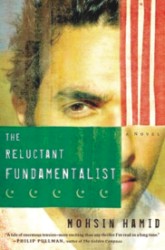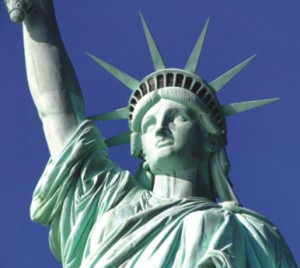|
Straight Talk
The Consequences of Prejudice
Nadia Kabir Barb
 At times reading a book can be an immense pleasure and at other times be an excruciatingly painful exercise. I have on numerous occasions picked up a book and found it near impossible to go past the first chapter. Sometimes it has been the style of writing, the story or even the characters that have not appealed to me and made it too much of an effort for me to want to persevere with it. Admittedly, I am very fickle when it comes to books and if I find myself uninterested in it, I move on to the next one. You should want to read a book not find it too much like hard work. On the other hand like most readers, if I am lucky enough to lay my hands on a good book, the rest of the world just melts into the background and I find myself disappearing into the pages of my book. You find yourself drawn into the world created by the author and only remember to re-emerge when you realise you have other obligations to attend to or when you come to the final page. Finding a book you enjoy can be extremely rewarding. At times reading a book can be an immense pleasure and at other times be an excruciatingly painful exercise. I have on numerous occasions picked up a book and found it near impossible to go past the first chapter. Sometimes it has been the style of writing, the story or even the characters that have not appealed to me and made it too much of an effort for me to want to persevere with it. Admittedly, I am very fickle when it comes to books and if I find myself uninterested in it, I move on to the next one. You should want to read a book not find it too much like hard work. On the other hand like most readers, if I am lucky enough to lay my hands on a good book, the rest of the world just melts into the background and I find myself disappearing into the pages of my book. You find yourself drawn into the world created by the author and only remember to re-emerge when you realise you have other obligations to attend to or when you come to the final page. Finding a book you enjoy can be extremely rewarding.
Recently, my husband gave me 'The Reluctant Fundamentalist', by author Mohsin Hamid, to read, and after motivating myself to actually give it a go, I ended up finishing it in a couple of sittings. I would probably have finished it sooner had my children not required feeding or looking after!
Apart from the fact that I found Hamid's style of writing very accessible, the story itself was also not filled with complex plots, unexpected twists or an unmanageable number of characters to deal with. It is a simply written story of a young Pakistani man 'Changez', and his love of America and all that it represents and his gradual disenchantment and disillusionment post 9/11, which ultimately forces him to leave New York and return to his home country. During the course of the novel, which is set in a teashop in Lahore, and delivered as a monologue, Changez tells his story to a mysterious American. We, the readers have no idea as to the identity of the mystery man and are left to speculate. Is he just a tourist? Is he an assassin sent by the US government to eliminate Changez? Or is Changez plotting to kill the stranger? These are questions that are left unanswered till the last conceivable point.
 It is Changez's gradual transformation that I found most interesting. The narrator explains how despite his efforts to integrate into American society by being a Princeton graduate, holding a much sought after position at a prestigious organisation, he still had aspersions cast on him due to his appearance and ethnic background once the attacks on the World Trade Centre took place. It is his internal journey of realisation of his resentment towards the United States and its foreign policies, his increasing frustration at his own hypocrisy and ultimately his leaning towards Islamic fundamentalism that makes that book fascinating. We live in times where you are judged by your religion, ethnicity and appearance. A Muslim man, hailing from certain countries and of a certain age must be a possible terrorist. It is Changez's gradual transformation that I found most interesting. The narrator explains how despite his efforts to integrate into American society by being a Princeton graduate, holding a much sought after position at a prestigious organisation, he still had aspersions cast on him due to his appearance and ethnic background once the attacks on the World Trade Centre took place. It is his internal journey of realisation of his resentment towards the United States and its foreign policies, his increasing frustration at his own hypocrisy and ultimately his leaning towards Islamic fundamentalism that makes that book fascinating. We live in times where you are judged by your religion, ethnicity and appearance. A Muslim man, hailing from certain countries and of a certain age must be a possible terrorist.
For even the most moderate of Muslims, the constant depiction of Islam as a religion that propagates violence and aggression is not only frustrating but can also evoke feelings of anger and resentment. It seems only natural to want to defend the reputation of something as important as your religion. But surely this does not make everyone a terrorist.
Initially the protagonist Changez comes across as a relatively likeable sympathetic character. He appears to be a bright and articulate young man from a respectable background and not remotely religious or bigoted. But after the 9/11 attacks his attitude begins to change and we find a different side to the character. The more you find out about the central character, the more shades of grey within his psyche you discover. Ultimately he becomes a 'fundamentalist' albeit gradually and 'reluctantly'.
The story made me think about the world we live in where fundamentalism is not just restricted to the older generation. Nowadays it is the younger people who become embroiled in terrorist activities and find themselves being lured into the world of fundamentalism and fanaticism. More and more young men and women are finding themselves disillusioned by what they feel to be the prejudice held by the western world and become entrenched in their views. Mohsin Hamid's Changez reminds one of this.
I found 'The Reluctant Fundamentalist' an interesting read. At the end of the day it is just a novel, not a political or religious commentary. If you look too carefully there are some minor inconsistencies but as far as I am concerned it was definitely worth the few hours I spent visualizing the encounter of Changez and his mysterious companion.
|
